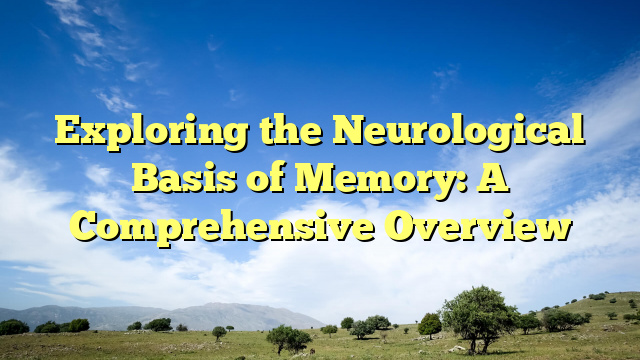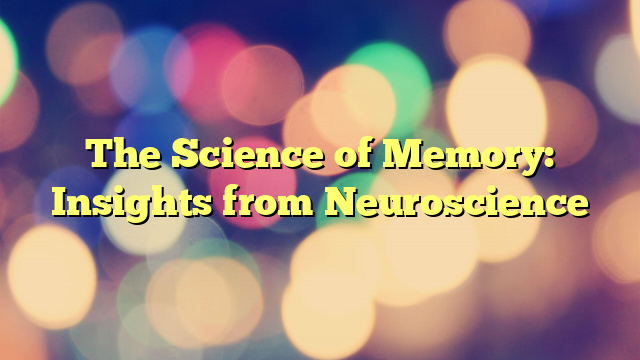Memory plays a crucial role in our everyday lives. From remembering our loved ones' faces to recalling important information for exams, our memory shapes who we are and how we interact with the world around us. But have you ever wondered how our memory works and how we can improve it? In this article, we will delve into the science behind human memory and explore ways to unleash its full potential.
The Science Behind Human Memory
Our memory can be divided into two main types: short-term memory and long-term memory. Short-term memory holds a limited amount of information for a brief period, while long-term memory stores vast amounts of information for an extended period.
When we experience something, such as meeting a new person or learning a new concept, our brains go through a process of encoding, storing, and retrieving that information. Encoding involves transforming sensory information into a form that can be stored in memory. This process can be influenced by various factors, such as attention, motivation, and emotional significance.
Once information is encoded, it is stored in different parts of the brain, such as the hippocampus and frontal lobes. Long-term memory is believed to involve changes in the strength of synaptic connections between neurons, a process known as long-term potentiation. This strengthens the neural pathways associated with a particular memory, making it easier to retrieve in the future.
Improving Memory
While our memory capacity is limited, there are strategies that can help improve memory performance. One effective technique is rehearsal, which involves repeating information to enhance encoding and retention. This can be done through methods such as flashcards, mnemonic devices, and spaced repetition.
Another way to enhance memory is by organizing information into meaningful chunks or categories. This can help improve retrieval by creating associations between related pieces of information. Additionally, establishing a routine and getting an adequate amount of sleep can also boost memory performance.
Conclusion
In conclusion, understanding the science behind human memory can help us unleash its full potential. By learning how memory works and adopting effective memory strategies, we can improve our ability to encode, store, and retrieve information. Whether you are a student preparing for exams or a professional looking to enhance your cognitive abilities, mastering your memory can have significant benefits in all aspects of your life.
FAQs
How can I improve my memory?
There are several techniques you can use to improve your memory, such as rehearsal, organization, and establishing routines. By adopting these strategies, you can enhance your ability to encode, store, and retrieve information more effectively.
Is it possible to have a photographic memory?
While some individuals may have exceptional memory abilities, true photographic memory, where one can recall visual information with precise detail, is rare. However, with practice and the right memory techniques, anyone can improve their memory performance.
How can emotions impact memory?
Emotional significance can have a significant impact on memory. Information that is emotionally charged is often better encoded and more easily recalled than neutral information. This is why we tend to remember significant life events or experiences that evoke strong emotions.
Unlock Your Mental Potential



